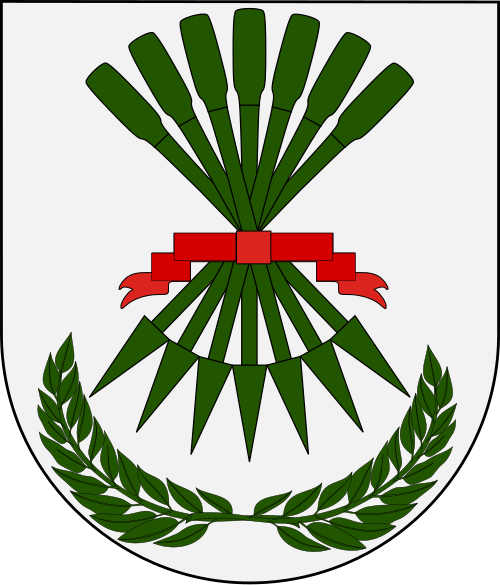South Africa
Posted: Mon Jul 24, 2023 1:30 am
Federal Republic of South Africa |
| Capitals: Pretoria (Executive) Cape Town (Legislative) Bloemfontein (Judicial) |
| Largest City: Johannesburg |
| Population: 38,110,000 Emancipated Citizens: 33,536,800 Passive Citizens: 4,573,200 |
| National Languages: English, Afrikaans |
| Demonym: South African |
| National Anthem: The Call of South Africa |
| Government: Federal Dominant-Party Semi- Presidential Republic |
| State President: Theo Gerdener |
| Prime Minister: F. W. de Klerk |
| Legislature: Parliament of South Africa Upper House: Senate Lower House: Volksraad  
|
| Currency: Rand (ZAR) |
Federal Republic of South Africa
Federale Republiek van Suid-Afrika
Federale Republiek van Suid-Afrika
The Federal Republic of South Africa is a Federal Dominant-Party Semi-Presidential Republic located in Southern Africa. It has a population of 38,110,000 and covers an area of 3,066,858 square kilometers. South Africa is dominated by the National Party, ruling uninterrupted since its initial election to power in 1948. Over time however, moderate forces in South African politics have pushed for a transition away from the system of Apartheid. Merging with the United Party to form the current ruling United National Party (Verenigde Nasionale Party, VNP) was a motion of goodwill both domestically and internationally. It saw promises of restructuring of the domestic system fundamentally, and an end to the homeland system of Apartheid. Those promises would be realized, with a domestic restructuring and a focus on culture & language being the legal separator, instead of race. Today about 12% of the population of South Africa are still considered "Native African", that being they refuse to abandon their native cultures in exchange for Anglo-Boer culture which dominates the nation.
Demographics
White: 33%
- White Afrikaner: 18%
- White British: 13.5%
- White Other: 1.5%
African*: 30%
Asian/Indian: 5%
Native African: 12%
*African is defined as per the 1966 Statue on South African Demographics as any wholly racial African who's culture is entirely that of civilized South Africa, as opposed to the culture of the native tribes (Native African).
Government
- President: Theo Gerdener
- Prime Minister: F. W. de Klerk
- Minister of Defense: P.W. Botha
- Commandant General: General Constand Viljoen
- Director-General of BOSS: Hendrik van den Bergh
- Minister of Justice: John Vorster
- Commissioner of the South African Police: General Gert L. Prinsloo
- Minister of Foreign Affairs: Roelof Frederik "Pik" Botha
The Legislature of South Africa, the South African Parliament, is bicameral. The upper house, the Senate is an appointed legislature with 3 senators appointed by the State President and each province being accorded 3 senators, themselves appointed by provincial governments. The lower house, the Volksraad is elected based on province. Each province elects one representative for each provincial region, determined federally, which then are elected in a FPTP system. Additionally entire provinces are allocated 3 representatives that serve the province as a whole.
The Supreme Court of South Africa is the ultimate part of the Judicial Branch of South Africa. The court rules on all legal matters which reach it via the appeals system, and the court system is sorted by province, then region, and local at the lowest level. The Supreme Court is made up of 5 "Tribunal Judges" who oversee all matters which are elevated to it. The Tribunal Judges are appointed by the President, confirmed by the Senate, and serve for 10 years before being forced into retirement.
History
After the embargoes of 1962-1964, South Africa's political climate became focused on ending their pending economic & diplomatic isolation. In 1964, the United and National parties agreed to run under a collective ticket in 1966, adopting some of each other's principles and committing to ending Apartheid's current system while maintaining the current economic disparities and a superiority attitude towards Anglo-Boer culture. After the guaranteed United-National victory in 1966, the system of Apartheid began its dismantling for the goal of the current system of cultural supremacy. While preventing further sanctions from being put in place, the voluntary sanctions remained, which stifle the importing capability of South Africa, especially concerning weapons. This change caused a backlash from both the far right and far left though. Particularly among the Boers there was a visceral reaction among the more conservative to reinstate Apartheid which resulted in the Herstigte Nasionale Party (HNP, Reconstituted National Party) and its militant faction, the Afrikaner Weerstandsbeweging (AW). On the far-left, there is the African National Congress. The ANC and to a lesser political extent the Communist Party of South Africa focus politically on the expansion of rights, socialist policy, and redistribution of wealth. Their militant faction, uMkhonto we Sizwe (MS) conducts much of the same actions as the AW but to the opposite goal.
Internationally the South African military has been used to stabilize its neighbors in the name of National Security. South African intervention has established right-wing victories in Angola with UNITA, Mozambique with RENAMO, and a semi-functional democracy in the Central African Federation (CAF). However, in all three states there are concerns. The communist MPLA in Angola & FRELIMO in Mozambique, as well as instability in the CAF provide concerns both to those nations in question as well as South Africa.














